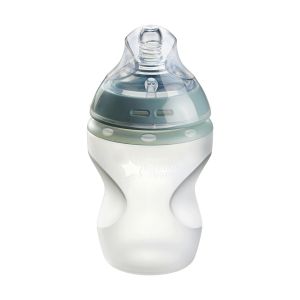
This is a demo store. No orders will be fulfilled.
Subscription orders can be cancelled at anytime. Standard delivery will be charged on each subscription order. Find out more about subscriptions.
They’re easy and fuss free
Your products are automatically sent to you
You save when you sign up for a subscription
You can cancel at any time
First things first, although having a baby with a fever can be worrying and stressful, it's important to note that all little ones get a high temperature from time to time. According to NCT, among parents with children aged between six months and five years, over 60% say their child has had at least one.
Fevers in young children usually subside within three or four days. But for your reassurance and their safety, it's important that you know what a normal baby temperature is, and that you can identify a fever to know if your little one is unwell.
Let's run through what a baby's normal temperature should be, cover the causes and signs of fevers in babies, and learn what you should do if your baby has a fever.
The normal average body temperature for a baby is around 36.4 - 37.4��C, depending on the part of their body that you're checking.
You can use a digital thermometer to check your baby's temperature if you suspect they have a fever. A high temperature or fever is usually considered to be anything above 37.5��C.
A baby's body temperature is considered low if it goes below 35��C. A temperature this low can potentially cause a sickness known as hypothermia. You should seek urgent medical attention if you're worried that your baby's temperature is dangerously low.
Your little one may have a high temperature or fever if:
You may also notice that they shiver or have chills when their temperature is on the rise. When it's falling back to normal, you may see them sweating.
A high temperature or fever is a natural response that's triggered by the body fighting against an infection.
Little ones sometimes get a high temperature after having their vaccinations. This is normal and means that their vaccination is working. This type of fever commonly goes away quite quickly, usually within two or three days.
Other causes of a high temperature in babies, children and toddlers include common childhood illnesses like:
Sometimes, a high temperature in babies is associated with more serious illnesses like meningitis, septicaemia, and pneumonia. If you're worried about your little one's health, you should seek medical advice immediately.
In most cases, babies with a high temperature can be cared for at home, and their symptoms usually improve over three or four days.
To help you know how to look after your baby when they have a fever, let's cover what you should and shouldn't do...
| DO'S | DON'TS |
|
|